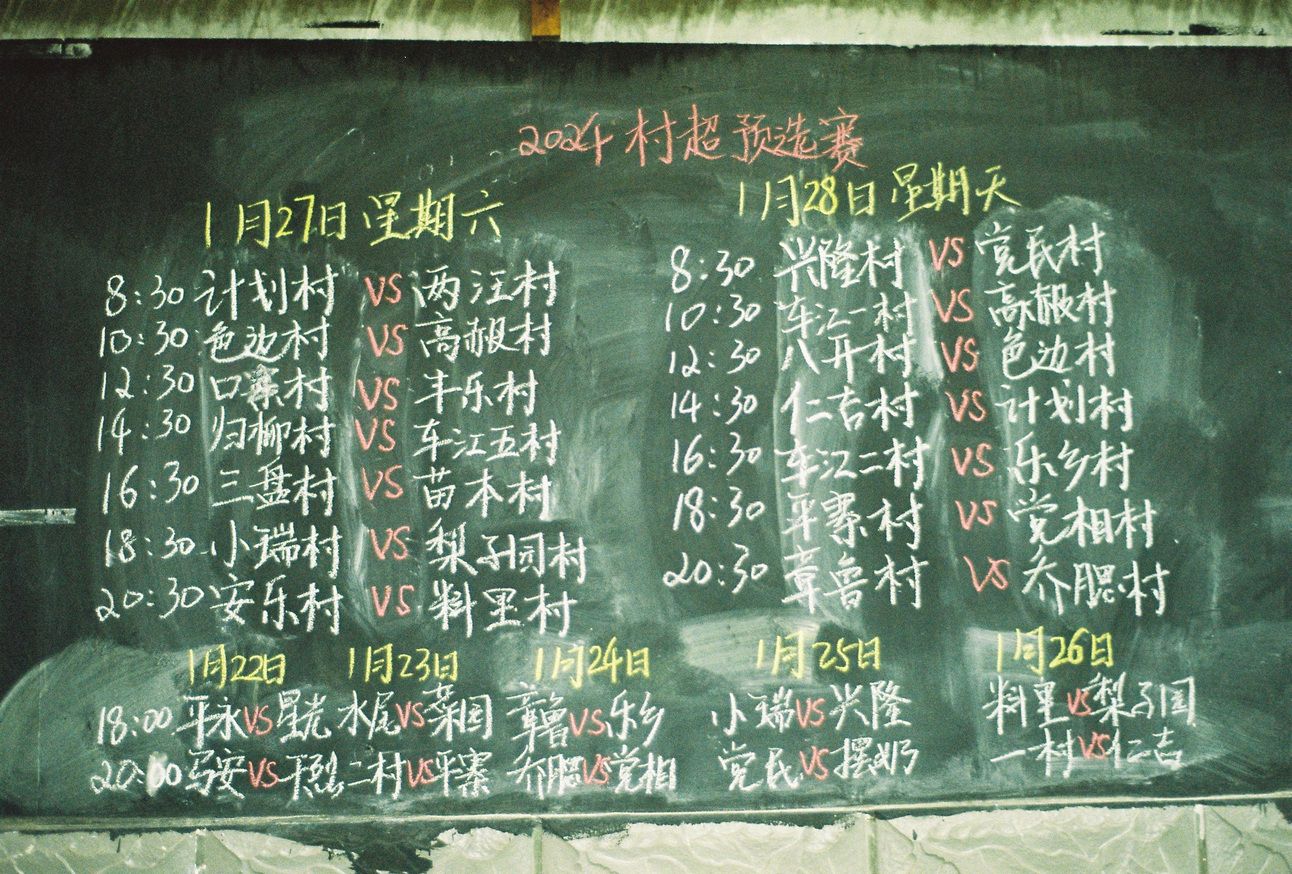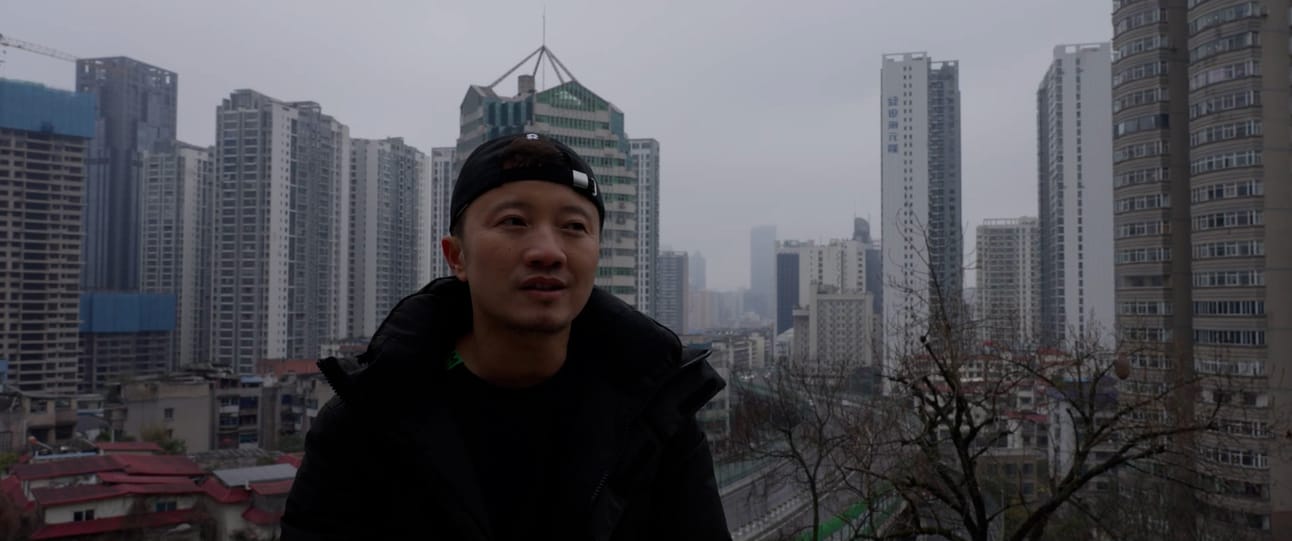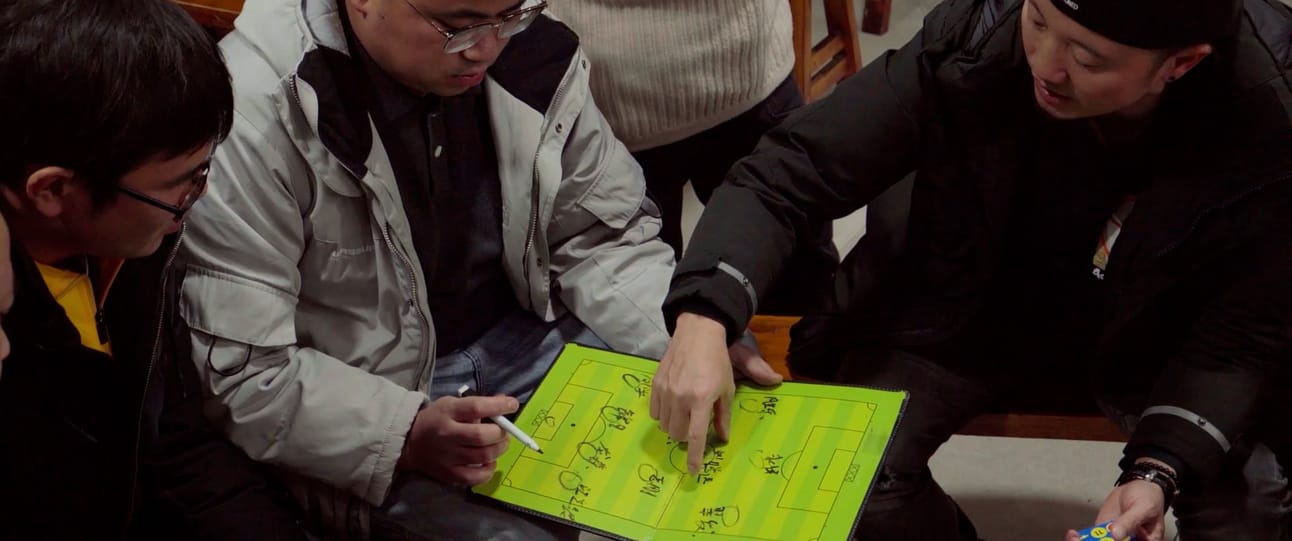- Documentary Values
- Posts
- Phase One: Research
Phase One: Research
Happy Sunday! Hope you’re doing well and watching good films. I am continuing writing about the making of process for the film I’m currently making. It’s an observational documentary about an amateur soccer league in rural China.
After going viral in 2023, Cunchao, a grassroots soccer league of ethnic minority villages in southern China must transform its fleeting fame into lasting opportunity to protect their community and traditional way of life in an increasingly urbanized and digital world.
I’ve always enjoyed the research process. I think a lot more of our films are figured out in the research phase than we’d like to admit as well. The influence a decision has here cascades throughout all the other phases of the film. Choosing, or not choosing a character, thread or angle affects the entire trajectory of the project. It’s a balance though, this can’t become paralyzing to the creative process. Overthinking every decision leads to films with no clear POV, you get lost in the sauce. When we began our research the most encouraging thing for us was how viral the league had gone. There was no shortage of posts from people traveling and going to games. Two million visitors is a lot for any community, especially one of 300,000.
A lot of Chinese people care about this, so how do we get a western viewer to get invested emotionally?

Schedule for qualifying tournament games
I’m a big believer in the people you reach out to first might not be in the film but they will introduce you to people who do end up being in the film. Being introduced from someone already in the community is invaluable compared to a cold reach out. We needed to find people to reach out to, but, we also wanted to have the reach out come from someone living and working in China. My wife grew up in the province we wanted to shoot in but she still has been living in the United States for five years at this point and still lives here full time. So we hired a great producer my wife knew from college (yay for film school networking wins) and we had her spend a few weeks simply searching social medias and forums for people that may seem interesting and are talking about Cunchao. While it would be great to find characters our goal was to get a sense of who the people from Rongjiang are. What are they like? It wasn’t a blind search, we had specific types of people that we were hoping to find. Most importantly was different generations, hopefully within the same family but having digital natives talking about a viral soccer league compared to someone who grew up with out electricity has a lot of potential for interesting juxtapositions. The other ask was finding players, fans but to see if there were other people involved in the league to talk to.

Wu interview in Guiyang
Alice came back with about 30 names/profiles for us to check out and figure who was worth pursuing. Here is where my earlier point come into play, out of this 30 we can draw a line to everyone that ended up in our film. Only a few people of this 30 end up in the film but the most important character we found for the film was in this initial group, a journalist. I had a professor that was adamant the best place to search for stories are newspapers and magazines; “They’ve done the work for you; if it’s been written about, people care about it”. She definitely wasn’t the first person to make this argument but it’s so elegantly simple I love it, and I believe it. This journalist, Wu not only grew up in the county we were planning on filming in but he played for a team in the league! Not for nothing but if there are professions that make someone more open minded a journalist has to be high on it, and we just weren’t sure how people would react to an American trying to film something like Cunchao. Other than Wu there were all kinds of people, high schoolers, traffic cops… you name it. We cast our wide net now we needed to see what we found. We took our time looking for people after the initial push. At this point our idea was to film a sizzle and through pitching that we could come back and properly film. That didn’t end up being the case as once we got on ground we quickly realized how difficult coming back would be in an official capacity, but that story is for the filming post 😀 .

Lang Dong Se Bian team members discuss tactics
In a weird way I found researching on my free time more difficult than editing the film on my free time. The subject matter being in anther language definitely plays a role in that but it’s more about the process. For me, research is going down rabbit holes, clicking links and ending up with 20+ tabs. That’s draining on a Tuesday night after a full day of work and the clean up at the end is beyond tedious. Throw in the fact that my wife and I are both editors by day, this was a process we haven’t done on this scale before.
One thing that we did that I think went a long way with us getting our access which is not technically “research” is meet with Wu in Guiyang before filming. No cameras, we did record audio for ourselves to look stuff up but it was no recorded with the intention of using in the film. Authenticity cannot be faked or created, it just happens. Our characters knowing us as people without cameras first and foremost was critical in creating authentic relationships with them. This is research, it’s the work you put it before pressing record. It’s easy to get blinders and think of research as spreedsheets, links and write ups but for observational documentary it’s so much more.
Overall I think we did “fine” in our research phase, like I mentioned we found Wu in our big push and he is as close as we get to a main character in the film, plus the team he plays for is who we follow. Can’t argue with that. There was probably another one or two more Wu’s out there that we could have found though and next time we’ve got to find them. We do know what we’re looking for in finding a characters, this film proves that and that’s my take away.
Until next time!
Reply